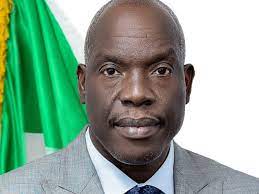The Federal Government projected that about $22.82 billion would be invested in 1,068 oil and gas projects approved between 2022 and 2023, the Chief Executive Officer of Nigeria Upstream Petroleum Regulatory Commission (NUPRC), Engr. Gbenga Komolafe, has disclosed.
The projects, which span across the broad spectrum of the hydrocarbon resources value chain, hold socioeconomic benefits for the country, including its enhanced production capabilities in oil and gas sub-sectors of the industry.
Komolafe spoke on the upstream investment plans during a panel session at the 7th Nigeria International Energy Summit in Abuja, with a focus on Nigeria’s oil production potential currently estimated at 2.26 million barrels of crude oil per day.
The industry expert, who also gave insights into nation’s strategy to meet the oil production quota set by the Organisation of Petroleum Exporting Countries (OPEC), spoke on the current efforts of the government to sustainably improve the contributions of the oil sector to the nation’s Gross Domestic Product (GDP).
The NUPRC boss explained: A total of 51 Field Development Plans (were) approved in the year 2022 – 2023, expected to attract a total $17.64 billion investment inflow as well as deliver cumulative oil recovery and gas recovery estimated at 2.12 billion barrels and 13.13 trillion cubic feet respectively in the next five years.
“A total of circa $2.5 billion investment in 175 wells drilling in the year 2022 – 2023. A total of $2.68 billion investment in 842 well workovers and other well intervention activities in the year 2022 – 2023 resulting in increased average oil production.
“275% growth in rig count from just eight in 2021 to average of 30 in the past one year. Early first oil achieved in recently streamed fields through accelerated FDPs.
“Some of the fields include: Ikike (Total), Efe field (Newcross), Utapate, (NEPL), Akubo Field (SEEPCo), Oyo (General Hydrocarbon) and several others streamed under Extended Well Tests including Ethiope, Omefejo, Ofa, Olure, Ibom, Apani, Kalaekule, etc.”, Komolafe added.
This is even as he spoke on the current gap between Nigeria’s actual oil production, averaging 1.33 million barrels per day, and its technical potential, describing the situation as opening opportunities for investors to tap into and by so doing, improve the nation’s oil revenue, address the current foreign exchange supply shortfall and enhance Nigeria’s economic resilience.
Komolafe restated the commission’s commitment to intensifying efforts to collaborate with the International Oil Companies (IOCs) to fast-track the development of some high volume deep offshore oil and gas deposits in the country.
Encouraged by the bright outlook of the oil sector, the Federal Government is targeting a 214% surge in Petroleum Profit Tax (PPT) collections in 2024 and also set an oil price benchmark of $77.96 per barrel with a production estimate of 1.78 million barrels per day (mb/d) this year.






